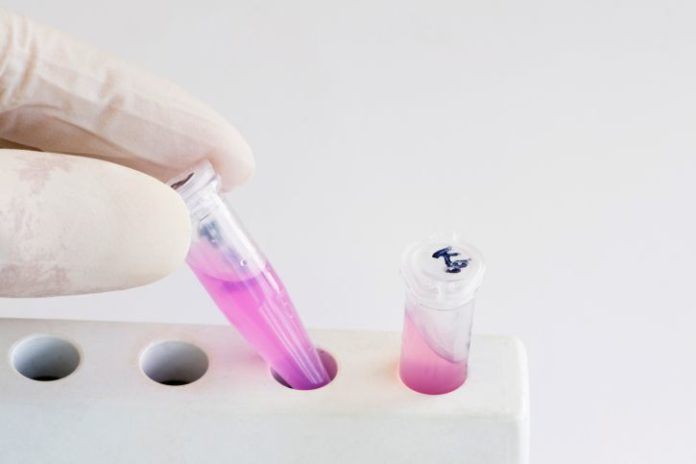Researchers from Murdoch Childrens Research Institute say Fragile X syndrome could be the first genetic disorder to be added to newborn screening in a decade. This is thanks to an early detection test which the researchers have shown works on blood spots collected from newborns that later developed Fragile X.
Newborn screening involves taking a blood sample from the baby two to three days after birth and testing for a range of conditions that will benefit from early diagnosis. The last time a new test was added to newborn screening, was in 2002. Newborn screening currently tests for 25 conditions.
The world-first Fragile X test for newborns, which analyses a DNA region that was previously thought to have no function, can both diagnose Fragile X syndrome and predict the severity of symptoms. Prior to this test, it has been difficult for doctors to diagnose Fragile X until the age of three years or older, particularly in girls. Importantly, early identification and intervention should increase the potential of children with Fragile X syndrome.
Fragile X Syndrome is the most common cause of inherited intellectual disability and the most common known genetic cause of autism. Every week in Australia one affected child is born with Fragile X full mutation and twelve children are born who are carriers of the faulty gene.
In the study, which was published in Genetics in Medicine, researchers used the early detection test on fresh blood and archival blood spots from 588 adults, children and newborns, including 242 with the Fragile X full mutation, and found the test was approaching 100% accuracy in both males and females.
Lead researcher, Dr David Godler said the test was highly advantageous for newborn, infant or early childhood population screening because the test detects those who would directly benefit from early diagnosis.
“The case for Fragile X to be included in newborn screening has been strengthened by evidence that early intervention with psychological and education therapies, and treatment with drugs can improve symptoms in affected children,” David said.
“The other important advance has been the development of a suitable test. Full consideration of a Fragile X heel prick test in newborns is now unconstrained by the lack of a suitable screening tool for this purpose. The comprehensive cost-benefit analysis of Fragile X testing within newborn screening programs can now be fully addressed.”
Researchers estimate the cost for inclusion of Fragile X syndrome would be between $700,000 to $1.5 million for every 100,000 babies tested. Based on the frequency of the condition, between 21 and 38 affected individuals would be identified in this population.
The societal cost of providing healthcare services over the lifetime of one individual with Fragile X syndrome is estimated to be between $350,000 and $2.5 million. Its inclusion into the newborn screening program has the potential to reduce the incidence of Fragile X in the population through identification of at-risk families who would be provided with reproductive options, and could see a very significant reduction in healthcare costs for the condition.
Fragile X can be compared with Cystic Fibrosis, another genetic condition which is currently tested in newborn screening and identifies 25 affected individuals per 100,000 babies. Screening for CF aims to achieve an early diagnosis and earlier treatment of symptoms. It also benefits these children’s parents through being informed of reproductive options. The estimated cost per individual over their lifetime is $350,000. Current testing for cystic fibrosis costs about $700,000 for every 100,000 babies screened.
“Given these similarities, the same arguments can be put forward to support newborn screening for Fragile X,” David said.
The test was initially developed in February and is currently available via the Victorian Clinical Genetics Services which is based at Murdoch Childrens, to complement the existing Fragile X test. The test is especially advantageous for diagnosis and screening in females, because it can specifically and accurately identify those individuals who are expected to develop cognitive impairment.
Source: Murdoch Childrens Research Institute










